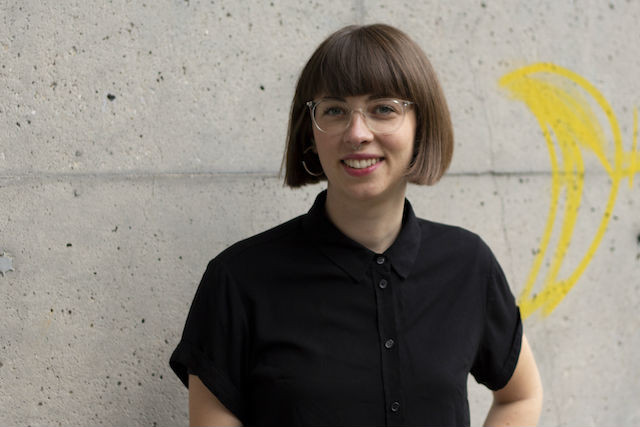A student of architecture, she says the burnout came in part because her studies were so intense but also because in her free time she threw herself into campaigning. While studying in Vienna, Austria, Steinmetzer was a member of the anti-fascist movement, countering the weekly recruitment drives of right-wing fraternities the Burschenschaften, among other actions. “When they had a rally, we tried to block them or if they were at university, we went there and played loud music so that what they said couldn’t be heard,” Steinmetzer recalls.
The activist returned to Luxembourg for some time off, which she says “helped me to see I have to have balance in everyday life,” she says. The answer wasn’t to put the banners away. “I can’t imagine not having my ideals and not fighting for them,” she says. So, she continued her activism, this time setting the agenda, with the young déi Lénk Laika. “We try to push our own conversations. I think for me that’s also the difference from anti-fascist activism to another kind of activism,” she says. “I’m still anti-fascist, but I like a group where we can push our own ideas and we’re not just reacting to other ideas, I think that’s also really empowering to sit together and say which subject do we think is important and push our own subjects.”
Given it hosts several international banks and European Institutions, Luxembourg is an ideal place for strategic activism and Steinmetzer knows this well.
Recently, she helped organise and participated in the large-scale red bridge climate protests in May 2019, as well as a demonstration against investing in fossil fuel infrastructure at the European Investment Bank in June.

Milena Steinmetzer, 28, juggles her activism with a part-time job working for déi lénk. Photo: Luca Andreolli
Steinmetzer is also active with the feminist platform Journée Internationale des Femmes. “It’s a wide-spread spectrum of feminists and I think it’s really important and really interesting to work with other feminists, not just to stay in my feminist corner with the same people who have the same idea of feminism,” she says.
Steinmetzer says it taught her a lot, but she is also trying to push the movement to reach a wider audience. Next year she hopes to hold a women’s strike for equal pay and rights, focused on care work, paid and unpaid. “We thought this would be a good point to start and say this is something every woman can identify so we can reach as many women as possible,” she says.
Today Steinmetzer is 28 and has found a way to sustainably juggle her activism with a part-time job working for déi Lénk. She is energised by the vast mix of “intelligent and resourceful and able people” she meets at demonstrations.
And she draws strength in the knowledge that by campaigning for multiple issues, she is working towards her goal, for a more just society. “The climate activism and feminist activism, it’s all related,” she says. “I don’t think we can just push one part of the spectrum, we need to push on all of the pillars that uphold society to form a new society.”
Even if the campaigns don’t lead to a direct win for one cause, Steinmetzer says they bring society closer together, in solidarity. As an example, she cited the UK miners’ strike in the 1980s, which was supported by lesbian and gay activists. They didn’t win, and the mines closed but the miners didn’t forget. One year later, they pressured the government and helped push through a resolution on LGBT rights. “You think you’ve not achieved anything again but sometimes you achieve things when you are working on something else,” she says.
